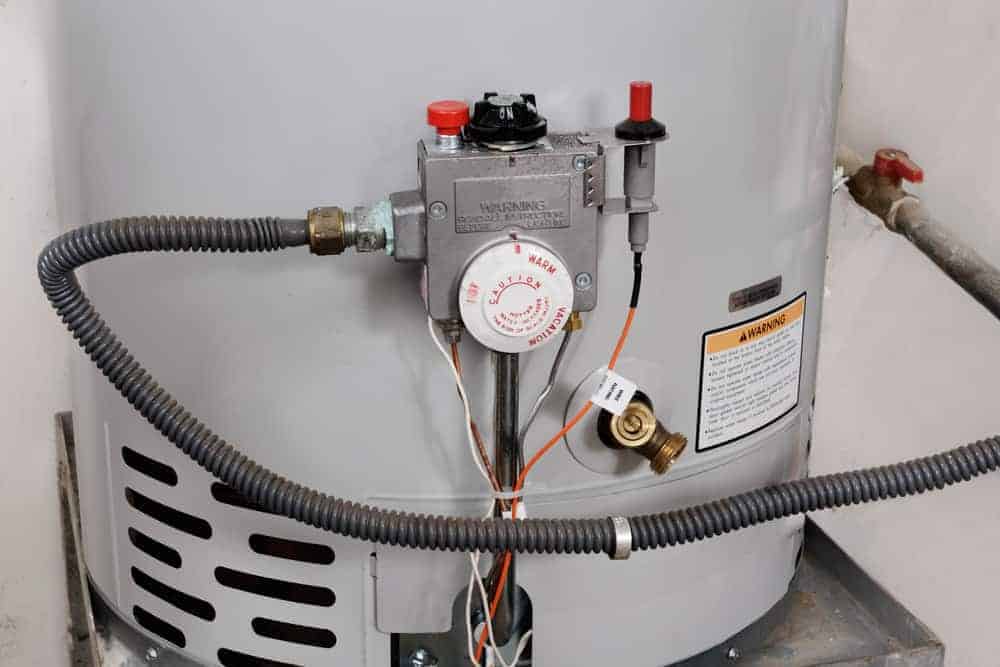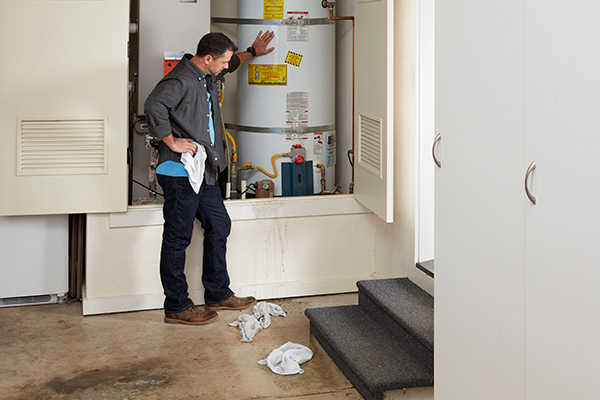Crucial Guidelines for Residential Property Owners Managing Broken Heating Units
Crucial Guidelines for Residential Property Owners Managing Broken Heating Units
Blog Article
This great article down below involving Maintaining & Draining a Water Heater is extremely fascinating. You should look it over.

Whether it is situated in the basement or a separate area, busted water heating systems can trigger anxiety. Having no warm water supply is also problematic.
Call the Plumber
After doing the initial two safety and security actions, you should call your plumber to come right away to take care of a ruptured water heater. There are usually indications that your aging water heating unit has sediment build-up in the inside.
Instead, as quickly as you find these indicators, have actually a specialist come to check your water heater container. Usually, water heaters have a life-span of regarding 8 to 12 years.
Cut Off the Cold Water Supply
Cut off the tanks faucet water supply from the source. This goes from your major water line right into the tank. When your container is in good condition, the cold water stops filling out when the tank is full. Because it is leaking, the water will certainly proceed to move. Close the shutoff found at the top of the heating system. Revolve this clockwise to shut it off. You must transform off that major water supply line outside your residential or commercial property if you can not find it or reach it.
Shut Down Power Source
Before calling the plumber, shut off a gas water heater by turning the temperature dial. This will certainly protect against electrocution, specifically if there is a leakage as water is a conductor. Typically, the heating aspect closes off when the water hits a details temperature.
Tidy up Building
After calling the plumber, paper damage by bearing in mind and pictures so you can declare your house owner's insurance coverage. From there, start the prompt cleanup. Secure any vital items to prevent further soaking. Eliminate any type of standing water to avoid mold as well as mildew growth. If you have a submersible water pump, make use of that to drain pipes the water. Or else, the standard container method will certainly also function. Try to wipe out everything, consisting of baseboards as well as walls. If you have an electric follower and dehumidifier, maintain them running to keep air flowing. This will certainly aid discourage mold and mildew development.
Remember, if you notice any kind of problems with your hot water heater, call the pros today. You can not take this problem gently because a faulty thermostat can increase water temp to an alarmingly high level, bring about unexpected burns. A broken heater pressure safety valve can likewise trigger an explosion. For ideal outcomes, get an annual check so your unit obtains examined, cleaned, drained, as well as filled up, guaranteeing ideal performance.
After doing the first 2 safety and security steps, you should call your plumber to come right away to fix a ruptured water heating unit. Instead, as soon as you identify these indicators, have actually a specialist come to check your water heating unit tank. Prior to calling the plumber, closed off a gas water heating unit by transforming the temperature level dial. If you have a completely submersible water pump, make use of that to drain pipes the water. Keep in mind, if you discover any concerns with your water heater, call the pros right away.
Is My Water Heater Broken?
The Water Heater is Old
No appliance will last forever. This includes a home’s water heater. During its lifespan, residents are going to face a situation where a new water heater installation will be necessary. The biggest problem with this is that most people are not sure when their water heater expires. Not knowing this can lead to serious risks if the unit begins to act up due to old age.
Most makes and models of water heaters will last between eight and 10 years. While 10 years is the age when water heater replacement is highly recommended, the need to replace the unit may occur before this time or after. If the unit doesn’t show any symptoms of a problem, it is a good idea to replace it at the 10-year mark (from the manufacture date).
Some of the symptoms that indicate a new unit is needed include rusting, leaks, noises, and a failure to heat up the water. Also, note that not all units have a 10-year life expectancy. The main exception to this rule is that a gas unit will last for six to eight years.
Rusty Heater Inlet Valve or Water
While steel is the strongest material on earth, it does have a weakness – rust. If corrosion occurs on a steel surface, it will begin to spread and eat through the steel in certain areas. On water tanks and pipes that are made of steel, rust is a warning sign of an impending leak.
The issue for many is trying to figure out if the rust is coming from the water heater or the pipes that lead to the faucet. If rust is seen, it is a clear indication that water heater service from the professionals is needed.
If rusty water appears out of the faucets in the bathtub or sink, it likely means a rusty water heater. If there is rust near the water inlet or the pressure relief valve, rust has likely developed inside the tank. If tap water appears rusty, it may be an issue with the pipes.
Strange Sounds from the Water Heater
Are there strange sounds coming from the tank? As a water heater gets older, rumbling noises may develop and get louder and louder as the water in the tank heats up. In homes where large amounts of hot water are used, the issue is likely going to be even more obvious when more serious issues arise. If there is a strange or loud noise coming from the unit, it is probably because of sediment buildup. A good way to remedy this problem is by flushing the heater. If this does not work, then a new unit may need to be installed.
Leaks
As a water heater gets closer to the end of its useful life, there is a higher chance there will be water around the tank. If there is water, this usually means leaks are occurring. Based on where the unit is located in the home, a leak may result in serious property damage.
Leaks are usually caused by expansions in the metal tank. The expansions occur as time passes and as the inside body of the tank is exposed to multiple heating cycles per day. When a fracture forms, the gap will be slight enough to hold the water in; however, in more serious situations, this will not be the case. If the tank is idle, the water will not leak but when the metal expands during each heating system, small amounts of water will get through the gap.

As a keen reader on How to Avoid a Broken Hot Water Heater, I imagined sharing that topic was really helpful. Sharing is nice. Helping people is fun. I treasure reading our article about Water Heater Burst.
Stress-free? Call now! Report this page